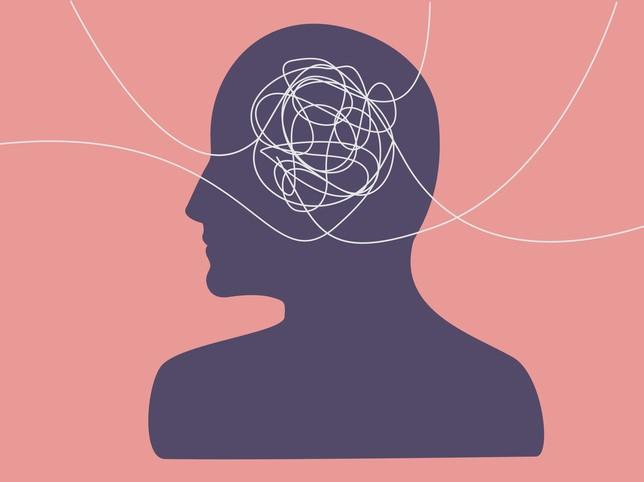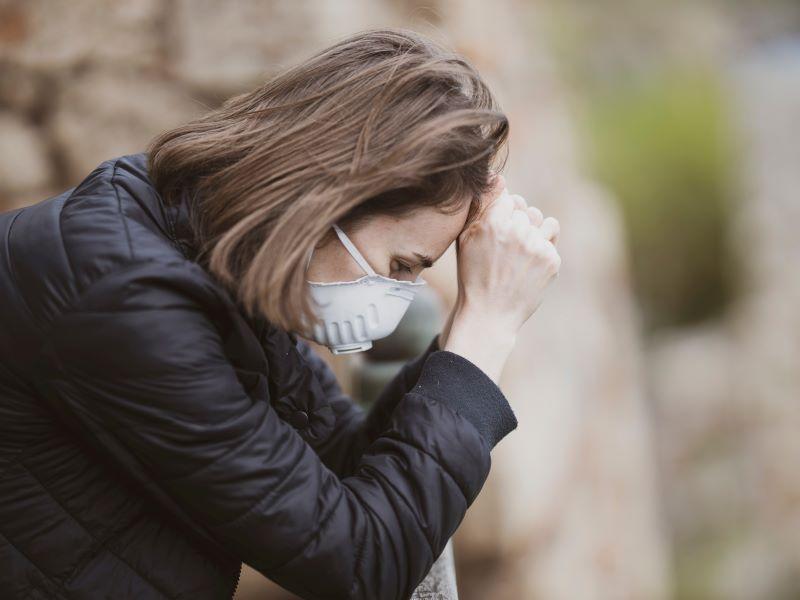
How to combat the mental health crisis on campus
From staff training to nap pods and on-campus emotional support animals, universities have well-established and novel ways to help students to better mental health and well-being

You may also like
Popular resources
The mental health crisis on college and university campuses is getting worse. The number of students facing mental health issues is staggering; according to the Journal of Affective Disorders, more than 60 per cent of college students met the criteria for at least one mental health problem during the 2020-21 school year.
The university I lead, Montclair State University, is no exception. Since the semester began last month, we’ve seen a record number of calls to our university police department and student-run ambulance corps related to mental health concerns.
- Resource collection: The post-pandemic university: how to serve the Covid generation
- Video: Four ways to make support for student well-being comprehensive and inclusive
- Why students and faculty alike need mental health first-aid training
Experts attribute this to a wide range of factors. The pandemic obviously has had a huge impact on our students; and the isolation that many felt – especially those in their formative teen years – affected their emotional development in ways that cannot be overstated. Moreover, it’s not surprising that students who are navigating the daily balancing act of intense school, work and family obligations amid a societal environment featuring increases in mass violence, social discord and climate uncertainty are experiencing unprecedented levels of stress.
An increase in campus mental health services
However, we’re aware of mental health issues on campus today for reasons that may not be new at all and even show progress in a positive direction; a reduction in the stigma around asking for help has encouraged students to feel more comfortable in doing so. As a result, universities have increased their mental health services. That wasn’t always something that a school provided at scale. But we’re morally obligated to help our students with whatever they are going through to foster their success, and that includes depression, anxiety and myriad other conditions.
Thankfully, resources are becoming more readily available to complement the university’s significant investment in mental health services, though keeping pace with the need is still a challenge. This year, the New Jersey Office of the Secretary of Higher Education (OSHE) awarded Montclair an $850,000 (£694,000) grant to help expand our mental health resources for students, such as immediate access to counselling. Montclair will use the grant to take important steps to increase much-needed support for students.
Seven initiatives to support student well-being
This crisis is one we all must combat together, on every campus across the world. Here are some of the approaches we’re taking, led by the division of student development and campus life, which includes several departments dedicated to student well-being, as well as our department of psychology:
- Encourage connection with other students going through similar challenges. We’ve set up weekly student groups that target specific circumstances: for example, student athletes coping with the pressure and recovery from injuries; survivors of suicide attempts; first-generation college students; international students; and those impacted by their own or a family member’s substance use. There’s not a topic that is off the table here.
- Widespread training. In addition to increased training for our faculty and staff, we’re ensuring that all students have access to suicide prevention training and depression screenings.
- Access to immediate counselling. This summer, we partnered with Uwill, a student mental health and wellness tele-therapy service, to offer students an immediate, secure and convenient way to receive tele-therapy counselling services should the need arise. We’ve already had more than 500 students use the service and hope to see it continue.
- Introduce nap pods. Research shows even short naps can boost energy levels, and we know that lack of sleep has a connection to anxiety, depression and performance. We want to help ease that, especially for our commuter students. Nap pods will allow students to recharge in small private areas around campus when they don’t have access to a bedroom.
- Bring emotional support animals to campus. Give students something to love. The OHSE funding covers Pebbles, Montclair’s new “pupscot” and therapy dog in training, who we hope to have certified within the year. Pebbles lives on campus with our assistant director for resident life and attends all kinds of campus events. She’s always available to bring joy to our students’ day-to-day life. Students say animals make a huge difference in lifting their spirits.
- Rethink the role of campus police. Montclair’s university police department has a different philosophy from a municipal police department. Our officers are dedicated not just to safety and compliance; they also embrace their role in the development of our students and the need to create a campus culture that is inclusive and welcoming. They make it clear to students that they are there to have a positive impact and to support them in moments of distress, not just to discipline. Our officers go above and beyond by having direct feedback sessions with students to hear their concerns and studying for certifications in student affairs and college student development.
- Reduce mental health disparities among youth by conducting in-depth research into root causes, interventions and solutions. Initiatives at Montclair include our Youth Mental Health Service Lab and Evidence-Based Practices & Interventions in Communities Lab (EPIC) Lab. Jazmin Reyes-Portillo, Carrie Masia and Jude Uy also received an American Foundation for Suicide Prevention pilot award; the findings of the research have the potential to serve as a model to increase treatment engagement among at-risk students who would otherwise not seek help, expand mental health services on college campuses and improve efficiency.
Just as there’s no one way to feel, respond or behave in regard to mental health issues, there’s no one solution to the mental health crisis. These are small steps to help solve a huge issue, and we realise more funding and resources are needed on a national and local level to make a bigger impact. In the long run, we hope to equip Montclair students with the tools to better manage their own mental health and support each other. It is a set of skills that are an absolute necessity to thrive in the modern world.
Every day – and not just on World Mental Health Day – let’s pledge as leaders to innovate, experiment and collaborate as we work together to address one of the most critical challenges of our time.
Jonathan Koppell is president of Montclair State University.
If you’re having suicidal thoughts or feel you need to talk to someone, a free helpline is available around the clock in the UK on 116123, or you can email jo@samaritans.org. In the US, the National Suicide Prevention Lifeline is 1-800-273-8255. In Australia, the crisis support service Lifeline is 13 11 14. Other international suicide helplines can be found at www.befrienders.org.
If you would like advice and insight from academics and university staff delivered direct to your inbox each week, sign up for the Campus newsletter.



Comments (0)
or in order to add a comment